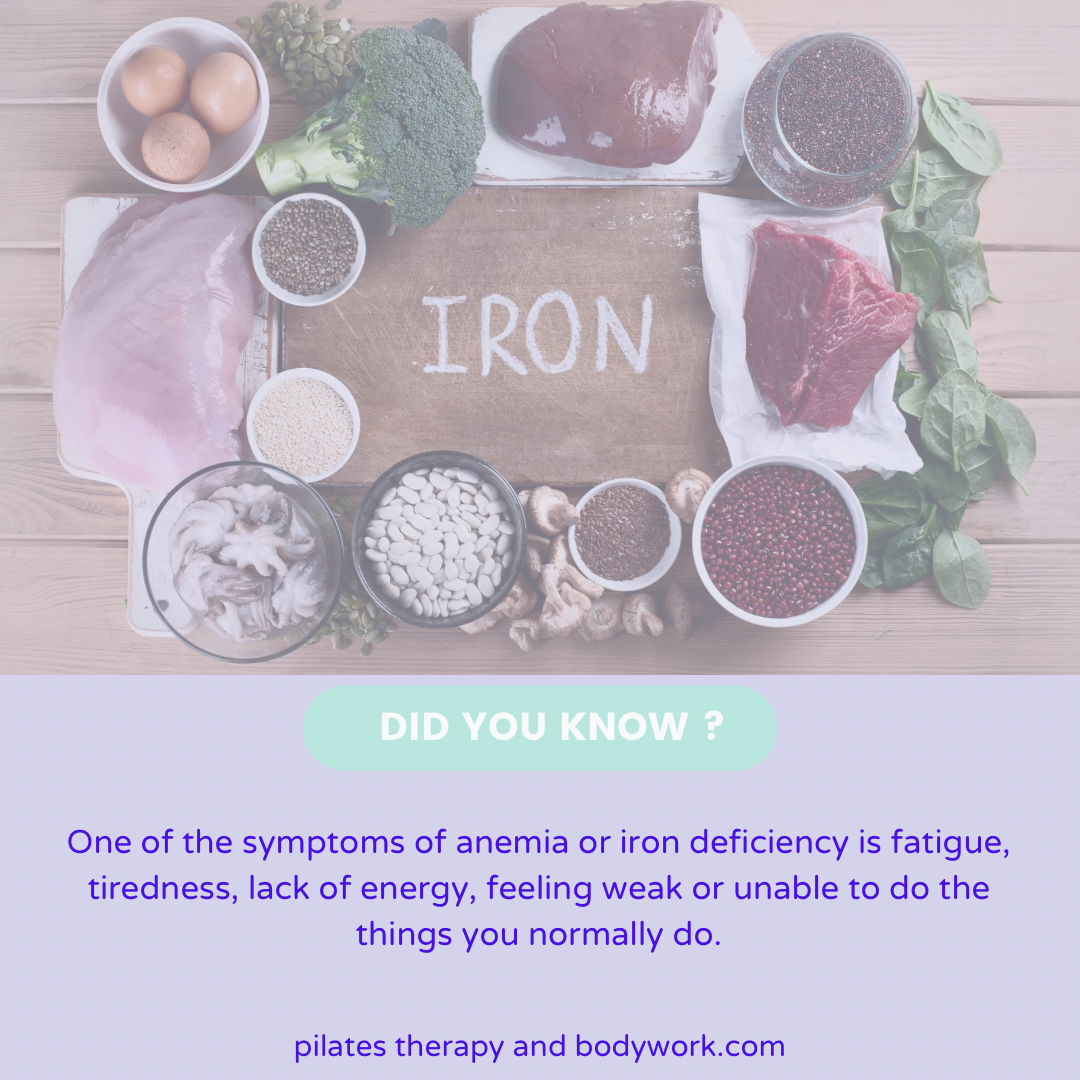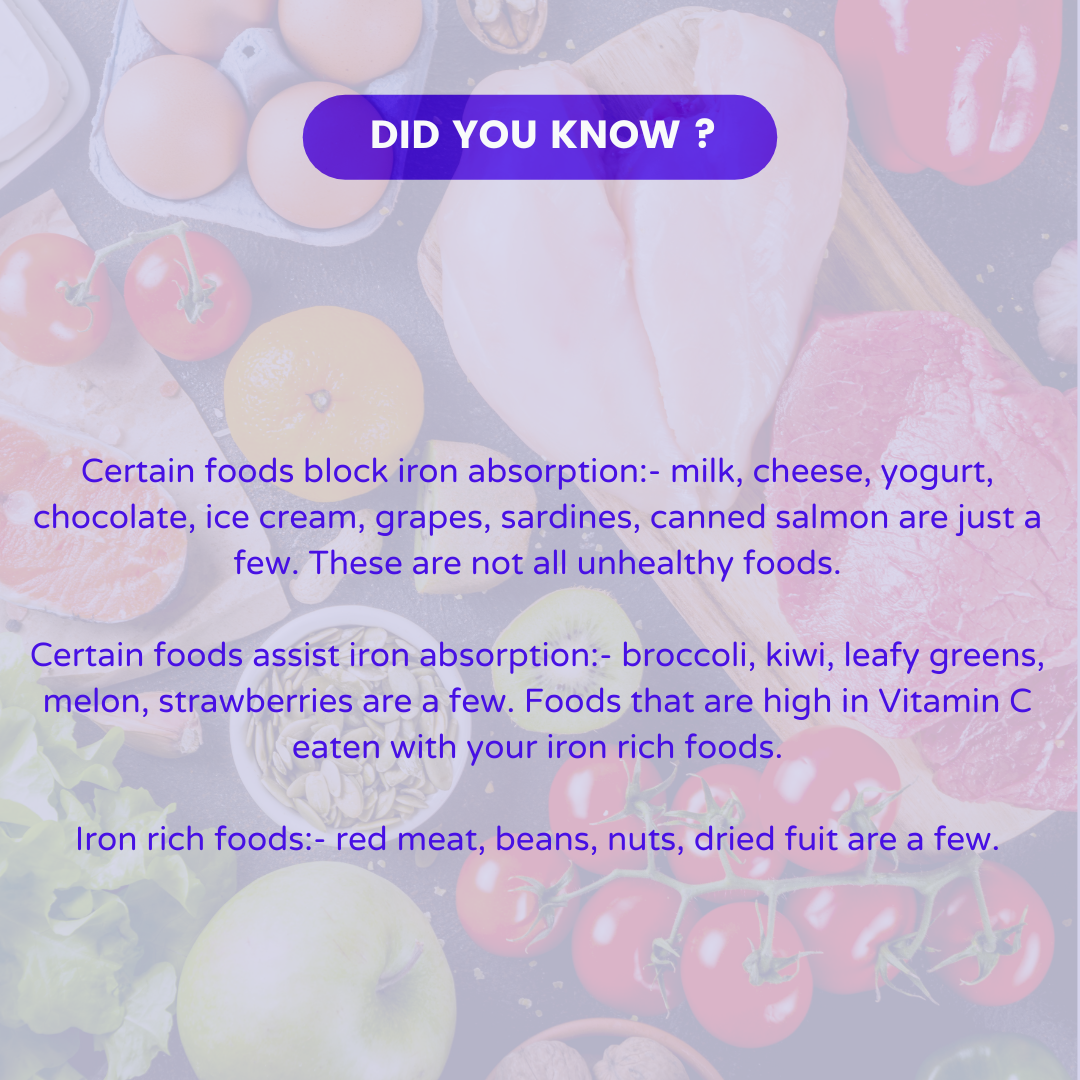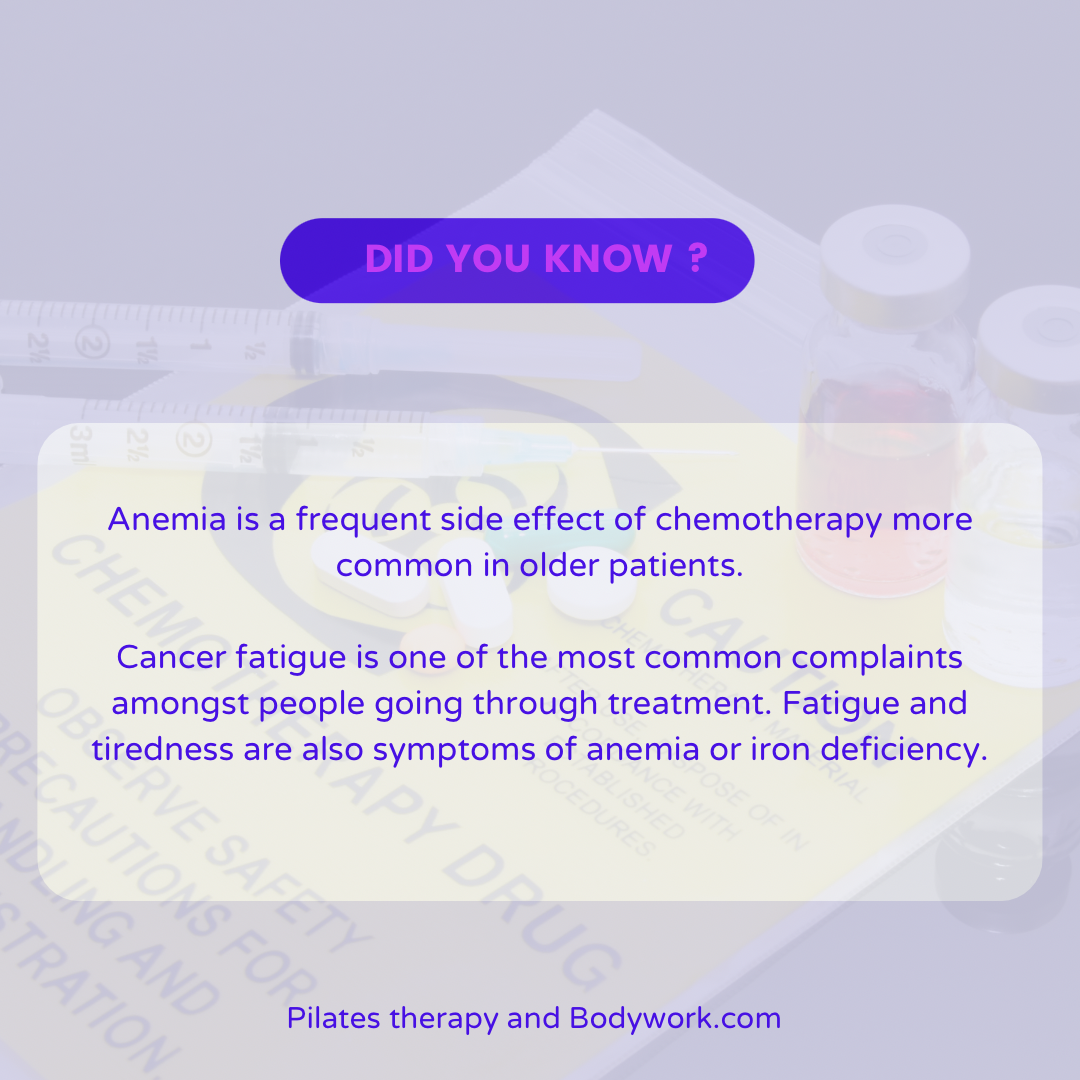Anaemia and Iron Deficiency: Understanding, Managing, and Overcoming Fatigue
Feeling Weak and Tired? Understanding Anaemia and Iron Deficiency, Especially During Cancer.
Feeling constantly weak, tired, or short of breath? These symptoms could be linked to anaemia or iron deficiency.
What is Anaemia?
It is a condition where the body does not have enough healthy red blood cells to carry oxygen. Some common symptoms are feeling breathless, noticing you feel weak, tiredness even after rest. You might feel dizzy and you skin might look pale.
Anaemia affects around 30% of the global population. Iron deficiency is the most common cause. In the UK is is estimated that 3% of men and 8% of women have Iron deficiency anaemia. The prevalence of iron deficiency in post menopausal women could be around 12% and 23% in pregnant women.
Anaemia caused by chronic diseases like cancer is another factor to explore. I now see more people going though cancer treatment as a specialist oncology massage and scar therapist. If something is cropping up on a regular basis I like to delve a bit deeper. Iron deficiency has cropped up a few times and most recently in my husband, who had bowel surgery and chemotherapy and also finished a course of radiotherapy last autumn.
Why cancer patients are more at risk. Did you know?
The effects of cancer treatments, surgery, chemotherapy and radiation can affect the red blood cells so you don’t have enough healthy red blood cells (Iron is required for those cells). Cancer-related inflammation can reduce iron.
(Wonder et al 2024) Found that chemotherapy-induced anaemia is common and affects a high percentage of those patients receiving chemotherapy.
(Critical reviews in oncology Hikmat Abdel-Razeq, Hasan Hashem 2020) Anaemia is commonly encountered in cancer patients.
Anaemia affects up to two-thirds of cancer patients receiving chemotherapy (J Broadfoot et al 2022) and 35% of those patients have underlying functional iron deficiency.
Don’t Ignore these symptoms
• Feeling exhausted even after rest.
• Trouble concentrating or “brain fog.”
• Shortness of breath or rapid heartbeat.
• Headaches, cold hands and feet, and brittle nails
These might be symptoms that are easy for healthy people to track. It becomes a little harder for those undergoing cancer treatment as probably the most talked about side effect of cancer and treatment is “cancer fatigue”. Memory and concentration and feeling cold are other complaints. It becomes a bit blurred or vague.
An interesting tit bit of information
My husband has felt tired, had trouble with brain fog, had brittle nails and felt cold since he had his bowel surgery in 2022 and chemotherapy during early 2023. The things he experienced were all the usual side effects he was warned about.
It was not his cancer team that noticed his iron deficiency, it was his annual GP health check-up that flagged up the issue – The importance of those annual health checks is clear especially as we get older and have more health concerns.
If you are still experiencing symptoms from your treatment long after it is finished, just mention it to your doctor as a simple blood test will reveal any issues.
Everyday tips to boost your iron levels
Dietary changes can really help. Most people are aware of iron-rich foods: red meat, spinach, beans and lentils etc. We are less aware of pairing iron-rich foods with foods that enhance iron absorption: vitamin c, things like oranges or strawberries. Probably the least thought about part of this story is the iron blockers: fortified oat bran and porridge, yoghurt, milk and grapes (this was my husbands daily breakfast as to him this was a healthy choice).
Track your symptoms
Optimise your food pairing and track your symptoms in a diary, this can help you discuss changes and concerns with your doctor. If you have had cancer and undergone treatment you are much more likely to need help from your doctor as the treatment can affect your healthy red blood cells.




